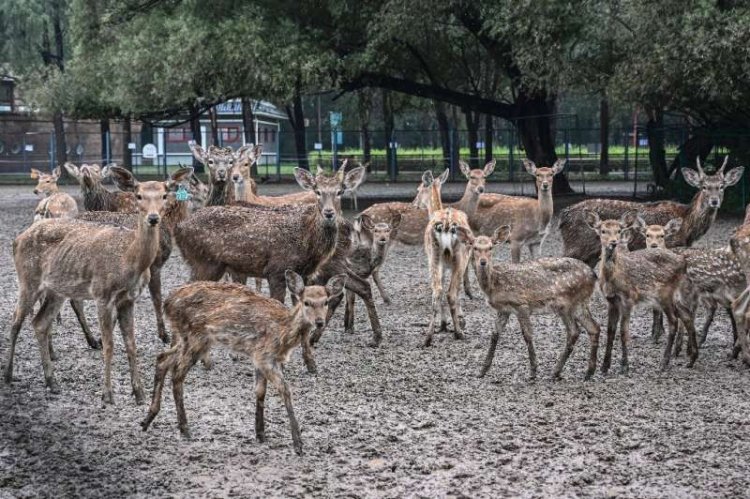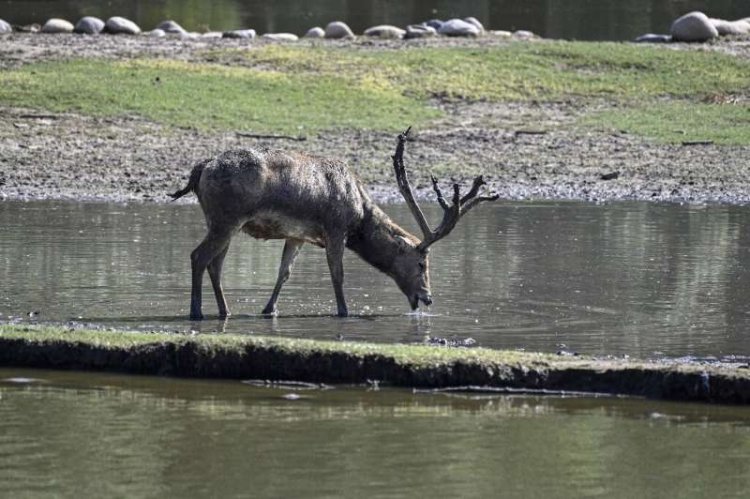Asian deer comeback marks rare Chinese conservation success
A herd of Pere David's deer -- also known as Milu in Chinese -- roam in Beijing's Nanhaizi Park, as the species, which was once extinct in China's wilderness, makes a remarkable comeback thanks to conservation efforts.
An Asian deer's comeback from the brink of extinction marks a rare success for China's conservation efforts, which have long faced criticism for focusing on only a handful of flagship species.
Pere David's deer were on the verge of disappearing towards the end of the 19th century, threatened by hunting for their meat and a loss of wetland habitat.
But after an extraordinary tale of survival -- which involved being smuggled to Europe and hidden from wartime bombing raids, before finally returning to China -- its population has grown to several thousand.
The comeback is a "remarkable tale of sheer luck and dedication of a small group of conservationists in China and abroad," said Zhou Jinfeng, whose NGO helped bring the creatures back from Europe.
News of the success comes as Beijing seeks to play a more prominent role in international conservation, with China this week hosting a key UN conservation summit.
At the opening of the meeting, President Xi Jinping pledged $233 million to a new fund to "support the cause of biodiversity conservation in developing countries".
But experts say tales like that of the Pere David's deer remain rare, with decades of breakneck growth exacting a heavy toll on China's biodiversity.
While the country has made significant strides in protecting its best-known species, such as giant pandas and elephants, critics say it has done far worse in safeguarding many other creatures.
From 1970 to 2010, almost half of China's land-based vertebrates vanished, according to the conservation charity WWF.
The country now has more than a thousand species that are fast disappearing due to developers encroaching on habitats, according to the International Union for the Conservation of Nature (IUCN).
And despite designating nearly a fifth of the country as protected areas, activities such as illicit mining and logging have fragmented reserves and left endangered animals marooned in "forest islands" without much room to forage or find mates.
China's poor climate record -- it is the world's top greenhouse gas emitter, with the economy still largely powered by polluting coal -- has also put further pressure on animal populations.
The deer are named after Pere Armand David, a French missionary and zoologist who spotted what was believed to be the only herd of the creatures at the imperial hunting ground in Beijing.

















